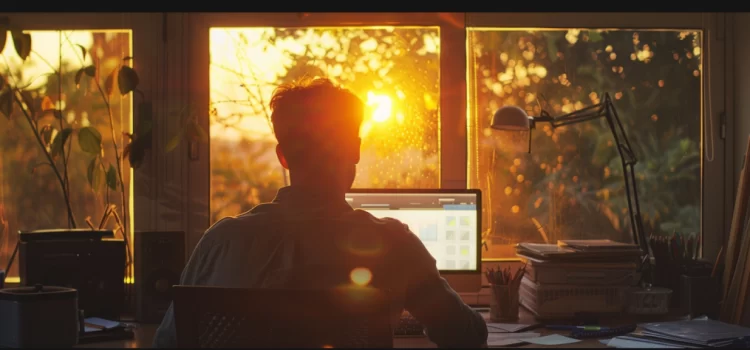
Have you ever wondered how a global pandemic could reshape our entire way of life? Was COVID-19 the catalyst for a major societal shift?
In their book COVID-19, Klaus Schwab and Thierry Malleret explore the far-reaching impacts of the pandemic. They outline how COVID-19 changed our lives, altering our perspectives on community, values, and nature. They also examine the potential for long-lasting changes in our behavior and priorities.
Continue reading to discover how COVID-19 has put us all on a new path.
How COVID-19 Changed Our Lives
The COVID-19 outbreak has dramatically changed how people think and behave. It’s a prime example of how COVID-19 changed our lives, affecting our views on social relationships, time management, and how we use resources and interact with the environment.
A New Sense of Community
The crisis has shown us just how important solidarity and support within local groups are. It’s exposed our vulnerability as humans, forcing us to face our own mortality. This realization could lead to big changes, both personally and societally, highlighting the need for teamwork within countries and internationally.
We’re seeing more youth activism and social media engagement, which could create a stronger sense of unity and shared human identity. However, the pandemic has also fueled nationalism and blame-shifting, leading to misinformation and attempts to find scapegoats. Our heightened awareness of death and fear can inspire both selfless acts and unity, as well as selfish behavior and social unrest.
Rethinking Our Values
The crisis has revealed the complexity of human reactions, with discomfort and uncertainty showing the psychological impact of major change. As we re-examine our social interactions, we might completely reassess community values, potentially leading to legal reforms that recognize essential workers and address significant inequalities.
The pandemic has changed how we view time and what we choose to buy. Confinement may have shifted our perception of time, making us value the present more and prefer a slower lifestyle. This health crisis could alter consumer behavior, encouraging a shift from materialism to simpler, more environmentally conscious living. Many people are reconsidering what’s important to them, focusing more on family time and nature rather than material possessions.
Entertainment, retail, and food industries have evolved, moving towards digital engagement and at-home entertainment. Post-pandemic, people are likely to value independence, environmental awareness, and social responsibility more than their previous pursuit of wealth.
Reconnecting With Nature
The pandemic has emphasized the importance of outdoor activities and appreciating nature for our mental and physical well-being. It’s highlighted the role of nature and open spaces in promoting health and wellness. There’s a growing recognition that environmental degradation is closely linked to public health crises, changing views on the importance of protecting our natural surroundings.
Physical activity and enjoying nature aren’t just leisure activities; they’re crucial for strengthening our immune system and maintaining overall physical health. The increasing awareness of the connection between human activities, deforestation, and the emergence of pandemics underscores the need to protect diverse ecosystems and manage our natural resources carefully.
All told, this health crisis has given us a chance to reflect and consider transitioning to a more empathetic and environmentally conscious lifestyle. This shift could strengthen our connections with our communities and the natural world, potentially paving the way for societal transformation.






